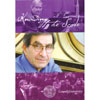Knowing the Score
An object lesson in piano performance
View record and artist detailsRecord and Artist Details
Composer or Director: Franz Schubert, Joseph Haydn
Genre:
DVD
Label: Cornell University
Magazine Review Date: 10/2006
Media Format: Digital Versatile Disc
Media Runtime: 0
Mastering:
Stereo
Catalogue Number: 9780801444845

Tracks:
| Composition | Artist Credit |
|---|---|
| (6) Moments musicaux, Movement: No. 2 in A flat |
Franz Schubert, Composer
Franz Schubert, Composer Malcolm Bilson, Fortepiano |
| (6) Moments musicaux, Movement: No. 3 in F minor |
Franz Schubert, Composer
Franz Schubert, Composer Malcolm Bilson, Fortepiano |
| Fantasia (Capriccio) |
Joseph Haydn, Composer
Joseph Haydn, Composer Malcolm Bilson, Fortepiano |
Author: David Vickers
This brilliant lecture filmed at Cornell University has a faint aura of material for a distance-learning course, but Malcolm Bilson is a clear orator, an enthusiastic and good-humoured tutor who places his wealth of knowledge at our disposal. By attempting to understand the implications of notation in music by Mozart, Beethoven, Chopin, Prokofiev and Bartok, he persuasively demonstrates that many pianists miss the composers’ intended effects. Bilson proposes that Beethoven’s piano writing deliberately stretched the instrument to evoke a sense of risk, and suggests that Mozart is “emasculated” and “robbed of its drama” owing to the way pedalling and legato have to be applied on a modern piano.
Bilson delivers a rigorous and convincing defence of the merits of early pianos. He clearly does not have much sympathy for the anti-period instrument lobby (the school of thought that insists “Beethoven would have adored hearing his music on a Steinway if only he were as lucky as we are nowadays”). He examines the technical capabilities of sounds from a modern Steinway piano compared to a Viennese piano from about 1790 and insists: “I’m not saying Steinways are no good, but there is something else we can discover about this music.”
Bilson puts his ideas into practice in a sparkling performance of a Haydn sonata filmed in the music room at Eszterhaza, and there is an informative discussion between Bilson and David Owen Norris about different kinds of historical pianos in Bilson’s music room.
Bilson delivers a rigorous and convincing defence of the merits of early pianos. He clearly does not have much sympathy for the anti-period instrument lobby (the school of thought that insists “Beethoven would have adored hearing his music on a Steinway if only he were as lucky as we are nowadays”). He examines the technical capabilities of sounds from a modern Steinway piano compared to a Viennese piano from about 1790 and insists: “I’m not saying Steinways are no good, but there is something else we can discover about this music.”
Bilson puts his ideas into practice in a sparkling performance of a Haydn sonata filmed in the music room at Eszterhaza, and there is an informative discussion between Bilson and David Owen Norris about different kinds of historical pianos in Bilson’s music room.
Discover the world's largest classical music catalogue with Presto Music.

Gramophone Digital Club
- Digital Edition
- Digital Archive
- Reviews Database
- Full website access
From £8.75 / month
Subscribe
Gramophone Full Club
- Print Edition
- Digital Edition
- Digital Archive
- Reviews Database
- Full website access
From £11.00 / month
Subscribe
If you are a library, university or other organisation that would be interested in an institutional subscription to Gramophone please click here for further information.




